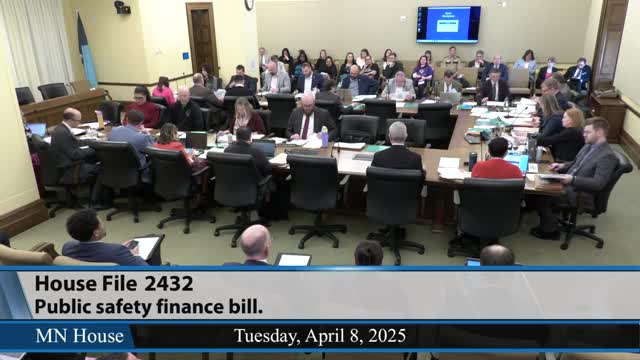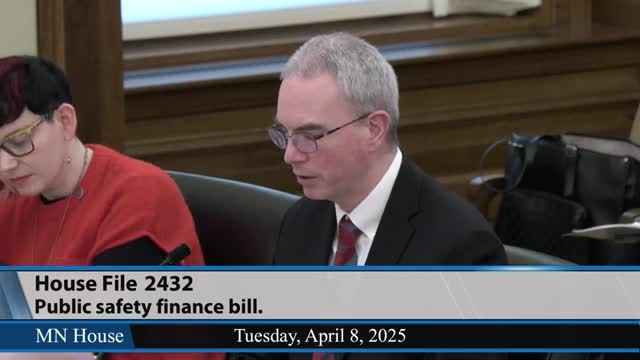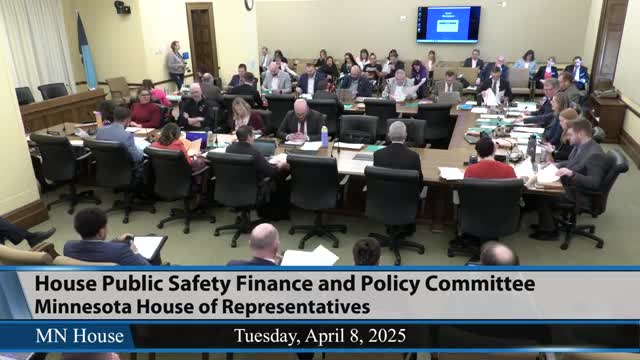Article not found
This article is no longer available. But don't worry—we've gathered other articles that discuss the same topic.

Article 2 provisions summarized: fentanyl exposure, naloxone in correctional facilities, supervision formula and sentencing changes

DE2 includes statutory transfer of Commerce fraud investigators to BCA, creates financial-crimes section

